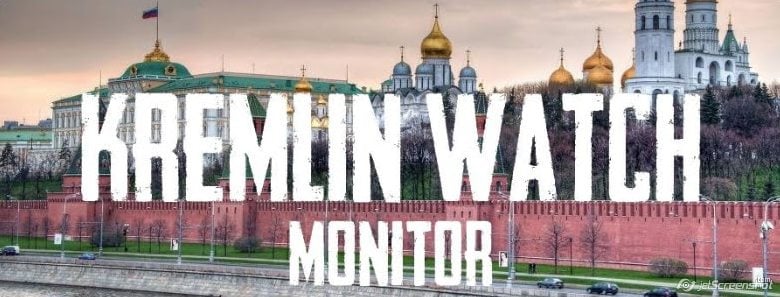
Weekly Update on the Kremlin Disinformation Efforts
The Obama administration was warned about the Kremlin’s subversive activities in 2014. In light of these revelations, the fact that the United States failed to take any serious action to pre-empt the Kremlin’s attempts to interfere with its electoral process is all the more serious. According to Politico, the administration had sufficient intelligence indicating that the Russian government sought to disrupt Western democratic systems, but either did not believe that the Kremlin had the will and capacity to reach the United States, or decided that it would be too risky to antagonize the Russian Federation.
Ukrainian separatists sentence blogger for 14 years. The so-called military court in the “Luhansk People’s Republic” sentenced two Ukrainians to 14 and 12 years respectively for “state treason” because they were involved in spreading negative information on the Internet. According to Halya Coynash, one of the “traitors” might be Edward Nedelyaev, a blogger from Luhansk.
Wanted: Chief Adviser for the Creative Content Support Fund
The European Endowment for Democracy in Brussels is looking for a Chief Adviser to assist the EED in setting up a new independent media initiative – the Content Fund. If you have an inclusive leadership style, experience with management, understand the media environment, have a good working knowledge of the Eastern Partnership countries, and speak fluent Russian, you can submit your application until Tuesday 5 September 2017. You can find more information here.
Putin’s Champion Award
Our Expert Jury consisting of Jessikka Aro, Peter Kreko, Nerijus Maliukevičius, Anton Shekhovtsov and John Schindler regularly votes on the dangerousness of several candidates you can nominate via e-mail or Twitter.
The 15th Putin’s Champion Award Recipient is:
Leader of the German political party FDP
Christian Lindner
For supporting the Kremlin’s aggressive foreign policy by suggesting that Germany shall accept that Russia has illegally annexed part of Ukraine.

The Expert Jury ranked his Putin-supportive job with
3.6
(out of 5) mark.

The rating signals how much the recipient contributed to the interest of the Putin’s aggressive regime. It is calculated as an average of ratings assessed by the Expert Jury of this Award.
You can find more details about the award and the former recipients here.
Kremlin Watch Reading Suggestion
Active measures: Russia’s key export;
by Jolanta Darczewska and Piotr Żochowski, published by OSW – Centre for Eastern Studies
Read the full study here.
The special services have always played a crucial role in the Soviet Union and in modern Russia, and have become notorious for serving the interests of their country by employing so-called “active measures”, which include a variety of methods ranging from propaganda or espionage to actions involving violence. Nowadays, we can very well observe how Russia is using active measures to achieve its geopolitical goals, which is why it is important to have both the historical perspective and current information about Russian covert mechanisms.
As for the present situation, we can understand a lot about the role of the of the so-called “force sector” in Russia and its methods by analysing Russian strategic documents. Very important here is the notion of the aggressive West that perpetually violates Russia’s vital interests. While in the 1990s, more “superficial” topics were emphasised, at present the civilizational and spiritual threat is in the foreground: the West is considered to be a threat to Russian culture and traditional values. The idea of the West as a threat grants the special services the role of defenders and justifies many of their actions. Today’s active measures focus more on the information space, aim mainly to create crises in other countries, and are primarily being conducted in most European countries.
Good Old Soviet Joke
An American is visiting the Soviet Union. He’s taking a train from Leningrad to Kiev and listening to his handheld radio when a Soviet man leans over to talk to him.
“You know, we make those better and more efficiently here in the Soviet Union,” he says.
“Oh?” Says the American.
“Yes,” the Soviet man responds. “What is it?”
Euroatlantic experts on disinformation warfare
Shashi Jayakumar from the S. Rajaratnam School of International Studies in Singapore advocates for local NGOs, the private sector, and academia to start researching and preventing the threat of subversive hostile influence before it increases.
In her article for oDR, Daria Skibo maps out the environment in Russia under the Foreign Agent law and highlights how NGOs are preventing the situation from worsening through cooperation and solidarity.
Kremlin Watch is a strategic program of the European Values Think-Tank, which aims to expose and confront instruments of Russian influence and disinformation operations focused against liberal-democratic system.





